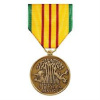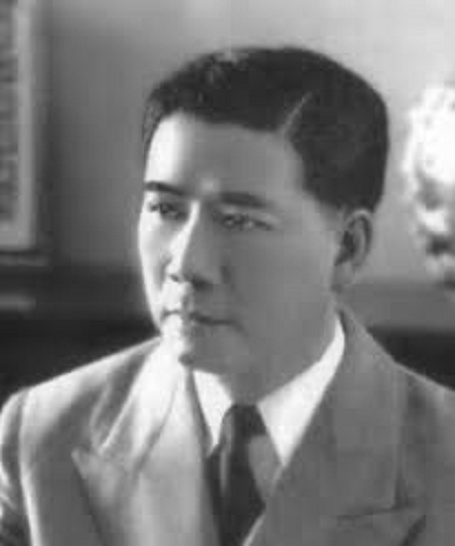Reset Password
Reset Link Sent
| Blogs > OnDaFence > Bret's Blogisphere |
|
IN The Begining...............  With every ending you try to look at the beginning. The 40th anniversary of the fall of Saigon will be here in a few days. The true beginning's seem to be hidden in the smoke filled rooms of the pentagon even prior to the fall of Diem Ban Pho and the French withdrawal from the Indochina. The buildup of American military personnel in Vietnam seems to have been in fits and starts. Under terms of the 1954 Geneva Accords that ended the French Indochina war, troop levels were limited to the number present at the time of the cease-fire. The United States reportedly had only a few hundred advisers until early 1961 when policymakers began to increase those numbers without the public’s knowledge and raised its commitment to propping up the government of Ngô Đình Diệm.  By late 1961 and 1962, a handful of journalists began writing about the corruption of the Vietnamese regime and of our government’s secrecy about what men and materiel we had there. In some cases, for their efforts, reporters were harassed, roughed up by Vietnamese police, denied visas or expelled from the country. These early days of what the American government refused to call a war—steadfastly declining to acknowledge what those who were there could see with their own eyes—is referred to by William Prochnau, who covered Vietnam in the 1960s, as “the time of the advisers.” On 2 November 1963, Diệm and his adviser, his younger brother Ngô Đình Nhu, were arrested after the Army of the Republic of Vietnam (ARVN) had been successful in a bloody overnight siege on Gia Long Palace in Saigon. The coup was the culmination of nine years of autocratic and nepotistic family rule in South Vietnam. Discontent with the Diệm regime had been simmering below the surface, and exploded with mass Buddhist protests against long-standing religious discrimination after the Huế Phật Đản shootings of protesters who defied a ban on the flying of the Buddhist flag. It is also suggested that the CIA and President Kennedy had involvement with the coup. On November 11,1961 The National Security Council met in an unusual Saturday session and decided to up the ante and secretly send in more advisers in something they dubbed “Project Beef-Up.” But this can't exactly be the "true beginning" of the war either.  Whatever the government thought it was hiding, a month later an aircraft carrier glided through the city down the Saigon River in full view of anyone strolling along the banks, its deck loaded with helicopters. In his classic, Vietnam: A History, Stanley Karnow reported watching that carrier from a café window in the Majestic Hotel—and that the U.S. Army press officer sitting with him said he hadn’t seen it. The New York Times reported on Dec. 12, 1961, that although “South Vietnamese and United States official circles kept the entire operation under strict security wraps,” on Dec. 11: "…thousands of persons lined both banks of the narrow, muddy Saigon River to watch the former World War II auxiliary aircraft carrier tie up at a pier in front of the Majestic Hotel. The gray-painted ship, dozens of khaki-colored helicopters and hundreds of grinning, waving service men appeared as dramatic evidence of the United States’ intention to bolster its assistance to South Vietnam in the face of the increasing threat from the Communists."  The "beginnings" that I have found stretch way back and beyond the 3,500 Marines that arrived in Da Nang in March of 1965—60 years ago—but by ’65, there were already thousands of so-called “advisers” in country. The Gulf of Tonkin Resolution or the Southeast Asia Resolution, enacted August 10, 1964, a joint resolution that the United States Congress passed on August 7, 1964, in response to the Gulf of Tonkin incident, might be listed as another false beginning point. It is of historical significance because it gave U.S. President Lyndon B. Johnson authorization, without a formal declaration of war by Congress, for the use of "conventional'' military force in Southeast Asia. Specifically, the resolution authorized the President to do whatever necessary in order to assist "any member or protocol state of the Southeast Asia Collective Defense Treaty". This included involving armed forces. What I find most amazing is that the war’s real starting point remains lost in the historical fog surrounding political tensions about whether the United States should have been there in the first place, whose fault it was that we eventually left Vietnam with our collective tail between our legs or disagreements about the stifling of dissent at home and the role of the press.  The simple fact that by war’s end we lost over 58,000 Americans, hostilities in Vietnam were never even formally declared. Until the Gulf of Tonkin resolution in 1964, our government essentially pretended we weren’t there. But if we’re ever to come to terms as a nation with the horrors of that conflict, we first need to acknowledge when it really began |
|||
4/27/2015 8:30 pm |
903 nice pic we do have to have a start in life
| ||
|
In the last few weeks I have read so much and watched so many documentaries on Vietnam it has left me numb and astounded as to how our nation stumbled into that mess. What is worse... we have repeated it in Iraq and Afghanistan
| ||
4/27/2015 9:40 pm |
Bret, I agree with you. How is it possible that the US could have so blindly stumbled into the Viet Nam conflict, left in defeat, and then did the exact same thing in Iraq and Afghanistan? There seem to be political and economic motives that are deeply rooted in every aggressive action taken by the US against tiny countries that are only a threat to themselves and their immediate neighbors. I lived through all of these conflicts, and failed to understand why any of them were started, and why they all ended without a decisive victory by either side, making the long lists of casualties unjustifiable.
| ||
4/27/2015 10:02 pm |
I gathered about as much from the hours... I just hate not being able to point my finger and say... THERE'S Where we went wrong or there's where we fucked up.
| ||
4/28/2015 7:33 am |
Bret, many thx fore becoming a friend, always love your humour and love of history, a joy to read have fun Alan.x
| ||
4/28/2015 8:55 am |
Many of them made a killing off of this long drawn out mess.
| ||
4/28/2015 9:00 am |
Yet IKE sent in "advisors" and was playing with the fire before Kennedy came along. Now we have since then hit Iraq and Afghanistan leaving them in the lurch in much the same way.
| ||
4/28/2015 9:02 am |
Bret, many thx fore becoming a friend, always love your humour and love of history, a joy to read have fun Alan.x
| ||
4/28/2015 10:38 pm |
Oh they probably did much the same as the Liberty ships were hauled out to sea and the ammo just tossed overboard after WW2
|
×
×



